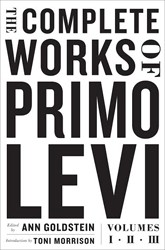In this beautiful memoir, Rosa Lowinger braids her Ashkenazi family’s history in Cuba with her personal journey, which includes her successful career as an art conservator. Born in Cuba in 1956, Lowinger immigrated with her family to the United States in 1961 after they were forced to acknowledge the prevailing political winds. Lowinger had just turned four and, as she observes, was already an expert at managing her mother’s extreme mood swings.
Her mother, Hilda, was only three weeks old when her own mother died. She carried for her entire life the self-imposed guilt that her birth had caused her mother’s death. A couple of years after her mother died, her father became ill, fell into alcoholism, and stopped working. With no means to support his young daughter, Hilda was shuttled among her father’s relatives and finally sent to an orphanage when she was four.
Lowinger opens Dwell Time with a scene of five-year-old Hilda scrubbing marble tabletops at her Jewish orphanage in Havana. A beat later, Lowinger links the marble of Hilda’s hapless childhood with her own expertise as a cleaner of marble:
I am an art conservator specializing in sculpture, decorative objects, and historic architectural materials. To me, it seems a strange luxury to use marble for an orphanage’s dining table.
For Lowinger, this history is what gave birth to her mother’s instability and lifelong abusiveness. She lays out her turbulent childhood in Miami with blunt descriptions of her beatings and psychological abuse. And yet Lowinger admirably persists in trying to understand the damage her mother inflicted on her. “You can’t repair what you don’t comprehend,” she explains.
Hilda’s exceptional beauty caught Leonardo “Lindy” Lowinger’s eye and won his heart. The son of an enterprising Jewish immigrant from Transylvania, Lindy’s infatuation with Hilda was unacceptable to the well-to-do Lowingers, and they sent their elder son to the United States to forget her. But Lindy’s attraction to his strong-willed girlfriend survived the separation and they were married soon after his return to Havana.
Unlike her mother’s treatment of her, Lowinger’s conservation work is delicate, born of patience and the desire to see something made whole in a new way. Conservators, Lowinger writes, “are masters of the slow and steady, using only methods and materials without inflicting damage.” The patience required to conserve a building or piece of art is called “dwell time.”
Dwell time becomes an effective metaphor throughout Lowinger’s account. She deploys the concept to describe her family awaiting an exit visa to America, and the time she spends traveling. Lowinger also ties dwell time to how materials and standing buildings are constantly changing. Only the stories attached to them are stable, “their materials the words and phrases of those narratives.”
The vocabulary of art conservation enriches Lowinger’s affecting memoir. At the beginning of her narrative, she introduces kintsugi: a Japanese process of mending breaks in ceramic pieces by gluing them and scattering the cracks with gold dust. She is interested in how kintsugi renews a work of art and reinterprets its history. She ends Dwell Time with yet another brilliant insight based on this technique, asserting that her troubled mother has enabled her “to mend the fraught past of our family. The joins are visible, but that’s the way I want them to remain, like Japanese kintsugi.”
In Lowinger’s hands, damage transforms into art.
Judy Bolton-Fasman’s essays and reviews have appeared in major newspapers including the New York Times and the Boston Globe. Her work has appeared in essay anthologies and literary magazines such as McSweeney’s, Brevity, Catapult, and Cognoscenti, She is the recipient of numerous writing fellowships and has won four Rockower Awards from the American Jewish Press Association. Judy is the arts and culture writer for JewishBoston.com.





